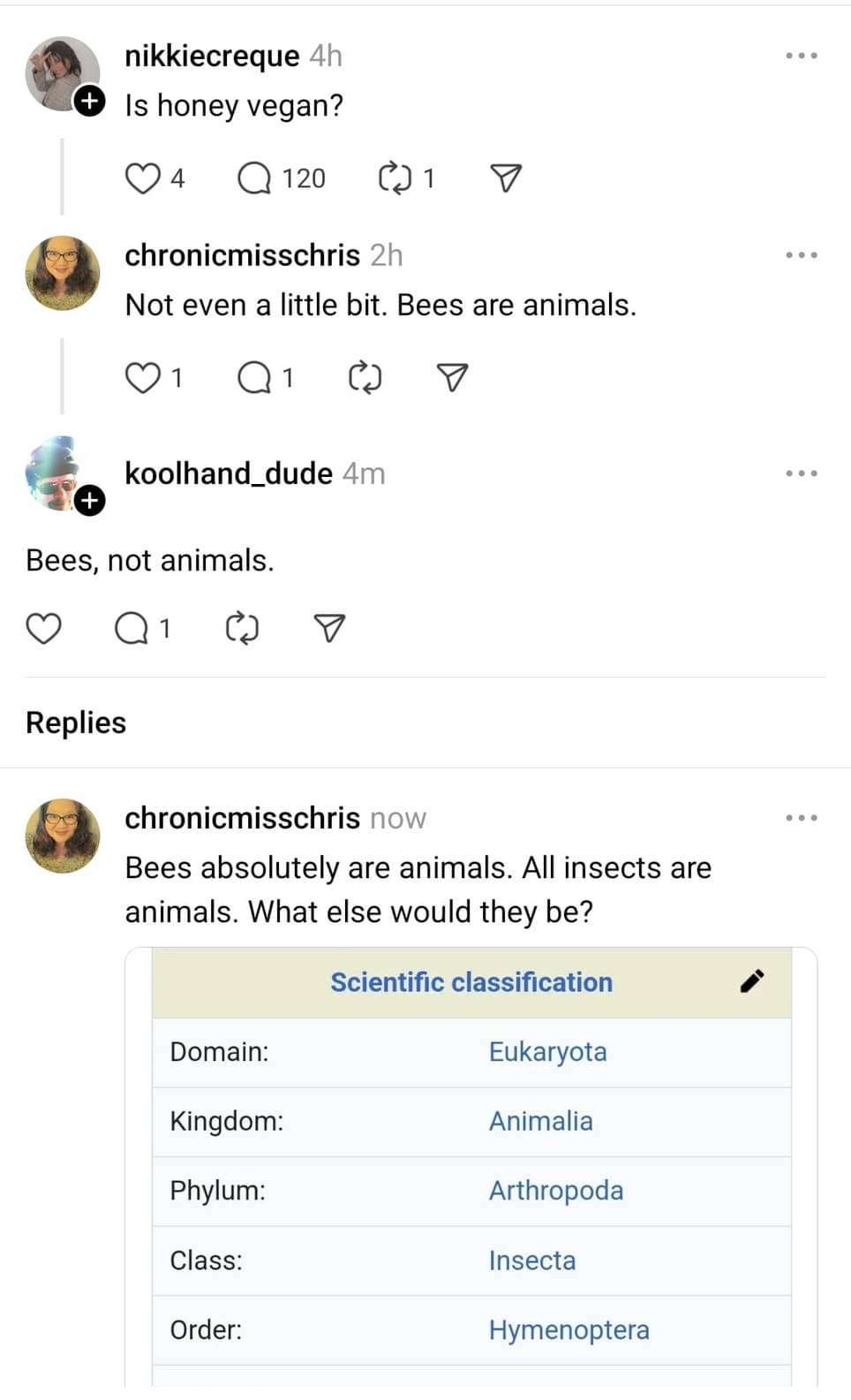this post was submitted on 19 Oct 2024
683 points (97.8% liked)
Science Memes
11111 readers
2346 users here now
Welcome to c/science_memes @ Mander.xyz!
A place for majestic STEMLORD peacocking, as well as memes about the realities of working in a lab.

Rules
- Don't throw mud. Behave like an intellectual and remember the human.
- Keep it rooted (on topic).
- No spam.
- Infographics welcome, get schooled.
This is a science community. We use the Dawkins definition of meme.
Research Committee
Other Mander Communities
Science and Research
Biology and Life Sciences
- !abiogenesis@mander.xyz
- !animal-behavior@mander.xyz
- !anthropology@mander.xyz
- !arachnology@mander.xyz
- !balconygardening@slrpnk.net
- !biodiversity@mander.xyz
- !biology@mander.xyz
- !biophysics@mander.xyz
- !botany@mander.xyz
- !ecology@mander.xyz
- !entomology@mander.xyz
- !fermentation@mander.xyz
- !herpetology@mander.xyz
- !houseplants@mander.xyz
- !medicine@mander.xyz
- !microscopy@mander.xyz
- !mycology@mander.xyz
- !nudibranchs@mander.xyz
- !nutrition@mander.xyz
- !palaeoecology@mander.xyz
- !palaeontology@mander.xyz
- !photosynthesis@mander.xyz
- !plantid@mander.xyz
- !plants@mander.xyz
- !reptiles and amphibians@mander.xyz
Physical Sciences
- !astronomy@mander.xyz
- !chemistry@mander.xyz
- !earthscience@mander.xyz
- !geography@mander.xyz
- !geospatial@mander.xyz
- !nuclear@mander.xyz
- !physics@mander.xyz
- !quantum-computing@mander.xyz
- !spectroscopy@mander.xyz
Humanities and Social Sciences
Practical and Applied Sciences
- !exercise-and sports-science@mander.xyz
- !gardening@mander.xyz
- !self sufficiency@mander.xyz
- !soilscience@slrpnk.net
- !terrariums@mander.xyz
- !timelapse@mander.xyz
Memes
Miscellaneous
founded 2 years ago
MODERATORS
you are viewing a single comment's thread
view the rest of the comments
view the rest of the comments

I'd say the issue is that if honey isn't vegan because you're causing harm to bees, isn't most of modern vegetable agriculture at least equally harmful to bees & other insects due to all the pesticides being used?
Or is it just if we directly involve bees, it's bad, but if we inflict greater harm in a less direct way, it's acceptable?
Every aspect of our globalised and industrialised world is causing harm. Veganism is about reducing the harm we're responsible for as far as possible and reasonable. Renouncing honey is easy. So it's possible and reasonable. No vegan thinks they're responsible for zero suffering or even zero dead animals, we're simply trying to reduce the number as best as we can without starving ourselves.
But if honey is cultivated in a way that's better for the bees than other sources of sugar, wouldn't using honey be more logical for vegans?
In a perfect world I think this could be true. Small scale backyard beekeeping with native species, where I only take the surplus the bees themselves don't use, where queens are left alone and drones are allowed to reproduce in their own pace. The problem is: That's not how it's done on the industrial scale at all. So even if you had such a bee utopia in your backyard and could replace all your sugary needs with that, as long as the well being of bees is of interest to you you'd probably still refrain from buying products that have honey in them. In a capitalist society companies will always use the cheaper stuff, and that comes almost exclusively with massive animal exploitation.
That argument does hold water but it would never provide enough honey for the market. It would necessarily require a vast reduction in the demand for honey to allow sustainably sourced honey to meet that demand.
I'm a going with far more harmful.
Yeah. The modern method of acres and acres of one species being farmed, with or without pesticides and other performance enhancing drugs is terrible for the environment.
For many animals, you might as well build an asphalt parking lot for each acre of corn or soy you plant. Same goes for Western grass lawns.
The critters that can't adapt starve or move away.
So you are saying that instead of eating vegetables vegans should just eat honey?
Vegans should stop eating vegetables and only eat honey then? Is that it?
Not just insects. Vermin control is critical and often not very ethical. Here in Australia, rabbits and kangaroos can be a big issue for farmers too and are often killed to protect crops when they become too numerous. Ducks can be a big issue for rice farmers here and permits are issued to shoot ducks on crops.